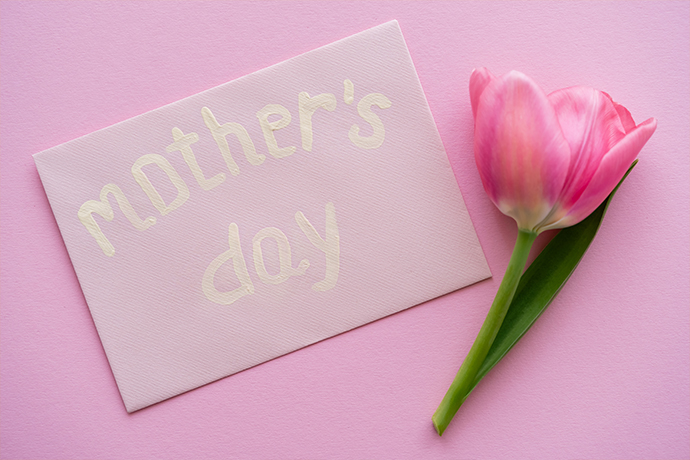 SPEAKERS
SPEAKERS
 TOPICS
TOPICS
Explore the rich history of Mother’s Day, tracing its origins from ancient traditions to its global celebration today.

Mother’s Day is a day celebrated by billions of people worldwide and is a day to celebrate the powerful influence and never-ending love of all mothers.It is necessary to prove the historical roots of this famous holiday before we can celebrate it annually. The origin of Mother’s Day is an exciting and heartening tale that stretches from the ancient societies that celebrated motherly divinities to the contemporary worldwide feast.
Let’s go through the history of this special day.
How did Mother's Day start? Mother's Day history began in ancient cultures when maternal figures were revered and honored through various festivals and rituals. Cybele was a spring festival celebrated in honor of Rhea, the mother of all gods. Similarly, the Romans used to commemorate the Hilaria festival in honor of their mother goddess, Cybele. The traditions formed the foundation for the present Mother's Day celebration.
Mothering Sunday evolved in Christianity as a day dedicated to the Virgin Mary and all mothers. It was a day when families gathered to honor the virtues of mothers, celebrated on the fourth Sunday of Lent.
However, the prevailing modern version of Mother's Day was greatly inspired by the effort of Anna Jarvis, the American social worker who advocated for a unique day to honor mothers. Derived by the love of her own mother, Jarvis dedicated her life to lobbying for the establishment of Mother's Day as an official holiday in America. Her relentless promotion made President Woodrow Wilson announce the second Sunday of May as Mother's Day in 1914, which started the worldwide recognition of maternal love and sacrifice.
The modern tradition of Mother's Day began in the US in the early 20th century, mainly because of the efforts of Anna Jarvis. Inspired by her mother's compassion and dedication, Jarvis initiated a movement to establish a day to celebrate mothers.
The first official Mother's Day was celebrated in 1908 in Grafton, West Virginia, where Jarvis conducted a memorial service for her mother, Ann Reeves Jarvis, who died three years earlier. This celebration triggered a lot of excitement and energy, and then other state celebration events emerged.
Jarvis' continued advocacy and grassroots victories trickled down on the national leaders and politicians. Backed by many, American President Woodrow Wilson proclaimed the second week of May a national holiday. Starting in the United States, Mother's Day quickly spread worldwide, and other countries embraced the holiday and added their own practices and customs.
Today, Mother's Day is celebrated in many different ways worldwide, with each country adding its own unique tradition to honor maternal figures.

The history of Mother's Day is fascinating and filled with many memorable milestones and traditions that are still going on even today.
So this is a timeline that shaped this beloved holiday:
A turning point in the Mother's Day story was the proclamation by President Woodrow Wilson that the second Sunday of May would be the day for celebrating mothers in the USA. This executive order declared Mother's Day as an official national holiday, thus setting the stage for its universal observance.
The spirit of Mother's Day went global and became universal as it reached all nations. This tradition became popular in Canada, Mexico, and other countries in the 1920s, with each adopting its own customs to celebrate maternal figures.
In the middle of the 20th century, the character of Mother's Day began to transform into a commercial holiday. Greeting card companies, florists, and retailers used the holiday spirit to sell gifts and expressions of love.
Today, Mother's Day continues to change and adapt to the changing environment and traditions. As a consequence, many new traditions and customs have been created worldwide, representing a wide variety of ways of honoring and celebrating mothers.
The growth of Mother's Day from a small West Virginia town celebration to a revered global event is an ongoing testimony to the enduring power of maternal love and the need to thank the women who touch our lives.
Every year, we celebrate this day; let us remember the meaning of motherhood and the irreplaceable role of maternal figures worldwide.
With time, Mother's Day has become a yearly homage to maternal love. Starting as a campaign under the activities of Anna Jarvis and becoming a day of commercialization, the holiday has dramatically evolved. Nevertheless, the thought of celebrating mothers and other maternal figures has even with these changesremained the same. Mother's Day transforms with the changes in society, with new customs and traditions being created to reflect the changing roles of women and family dynamics.

The internationalization of Mother's Day attests to its strong cultural impact on countries, with every country adding its own unique customs to the observance. Across America, Europe, Asia, and other parts of the world, Mother's Day is a worldwide celebration that honors motherly figures and thanks them for their love and sacrifice.
The variety of ways of celebrating it proves the diversity of world cultures, even though the reason behind the holiday is very the same: a warm tribute to mothers. This shared celebration makes Mother's Day a positive influencer, enabling people to come together in a common expression of gratitude for motherly love.
It originated in Greek and Roman cultures, where maternal figures and deities were celebrated. However, the modern celebration of the occasion started with Anna Jarvis in the early 20th century. Influenced by her mother's community service work, Jarvis worked for a day specifically dedicated to mothers. In 1908, she organized a memorial service for her late mother in West Virginia. She succeeded so that in 1914, President Woodrow Wilson proclaimed Mother's Day as a national holiday. It has come a long way since and has grown into a worldwide tribute of maternal love and admiration, which reflects Jarvis's sincere homage to her mother's heritage.
Mother's Day is still a tribute to the everlasting power of maternal love and human solidarity in the need to tell women who have made our lives better thank you. A small American tradition in the 20th century, Mother's Day has become a worldwide phenomenon, serving as a constant reminder of the importance of our mothers, grandmothers, and all women in our lives. As we revere this well-loved custom, we should consider the priceless quality of motherly love and endeavor to honor and appreciate mothers in our lives on that particular day and every day!
